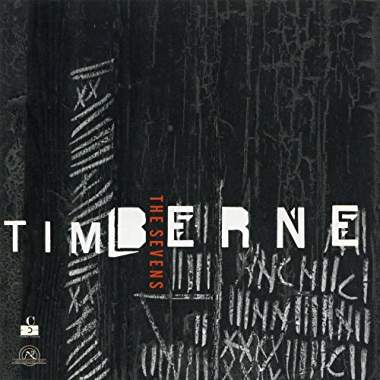
The Sevens
Tim Berne, Marc Ducret, David Torn
Phew! ... dancing about architecture ...
“The Sevens is Tim Bernes most explicitly "compositional" statement in some time. The albums core, a pair of through-composed movements performed by the ARTE saxophone quartet, could serve as an apotheosis of Tim Bernes chamber writing. "Repulsion" features four melodies (or is it one melody in four voices?), variously in dialogue or in chorus. Moving through a range of tonal colors, the piece reflects both Bernes fondness for friction and his less-celebrated sensitivity. In fact, certain sections sound almost wistful, as Berne cloaks his dissonances in subtle shadows.
In "Quicksand," the centerpiece of the album, the ARTE Quartett is joined by Berne and Marc Ducret, both of whom provide improvised commentary above and around whats on the page. Here, in one piece, is a fulfillment of the yin-yang ethos inherent in Bernes work, the tensile balance between composition and improvisation.
On The Sevens, the process of interpretation assumes several different shapes. First, theres the conventional notion of improvisation on a theme. Then theres the subtler way in which Ducret personalizes the solo miniatures "Sequel Why" and "Sequel Ex"two fairly divergent takes of the same hauntingly pretty song. Finally, theres the more radical manner of interpretation seen in "Reversion" and "Tonguefarmer"both of which are the product of studio manipulation at the hands of guitarist/programmer David Torn. This last procedure, a collaborative effort, stretches the bounds of "composition" in clearly contemporary ways. "Reversion," the first of these pieces, is essentially a remix of "Repulsion," with significant modifications. "Tonguefarmer," the second of Torns remixes, is essentially a palimpsest consisting of successive layers of exposition.
For Berne, The Sevens, with its various interpretive assignations, was "probably the hardest one to make, of records Ive made, in a long time." For an artist steeped in self-jurisdiction, surrendering even a portion of the product can be a terrifying prospect. Which is exactly why he did it. "Whatever the thing is that Im least secure with, I tend to want to expose that and face it, in a way." Accordingly, The Sevens ultimately resembles neither his eighties albums nor the live recordings of the ninetiesinstead defining a new Tim Berne paradigm, an uncertain but surprisingly smooth continuum expressing what the composer calls "unity through contrast."